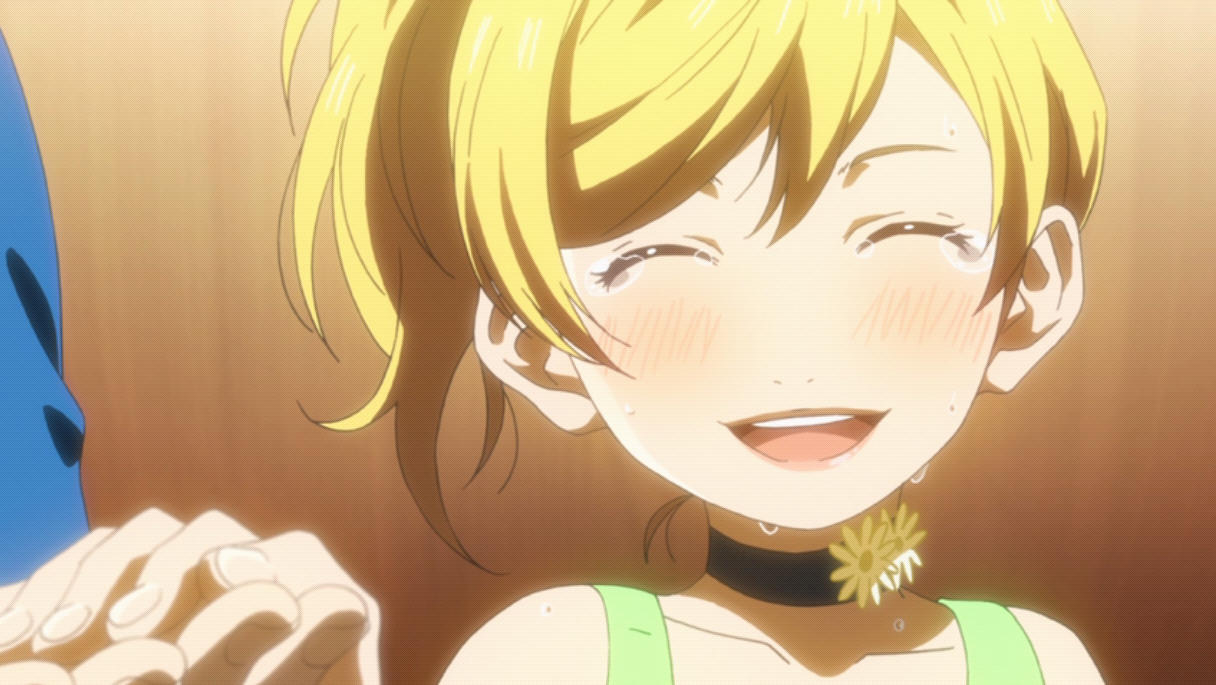Japanese Reading Report: 15 September 2024

This week I returned to university, however I still found the time to fit in input here and there. I read and watched:
- エロゲー文化研究概論 (162-214ページ)
- 四月は君の嘘(第5-22話、完了)
- とらドラ!(第1-7話)
- アマガミ(17日目まで)
エロゲー文化研究概論
In the early 2000s several erotic game makers were working out of the same office. The author of the book compared this to the トキワ荘 (a place I visited last November!). This week mostly covered the mid and late 2000s and included mention of series such as Fate, Clannad, SCHOOL DAYS, as well the popularisation of trends such as crossdressing and doting older characters. An interesting note was that a 2005 恋愛アドベンチャーゲーム called 処女はお姉さまに恋してる, which features a crossdressing protagonist, gave a voice to the main character - a rarity within the genre. The main character is also a source of titillation rather than a clear player avatar as is the case in many other games which may explain this exception. A game called はぴねす! hailed the start of the 男の娘 subgenre. The author mentions that material surrounding the game at the time referred to the relevant character as オカマちゃん, but the pieces were all there. はなマルッ! was also mentioned. It features a character who is effectively transgender. The term is not used in the book (and probably not in the game) but they are described by the author as:
「身体は男性・心は女性」(pp.209-210)Finally the author wrote about a trend of エロゲifying all-ages media. ToHeart 2 was raised as an example of an ecchi (but still suitable for all ages) game. A version called ToHeart 2 X-RATED was released one year after the original and added a lot of adult content.
There was a game called リトルバスターズ! which was for all ages. Later an R18 version, リトルバスターズ!エクスタシー was released. Even later, a "complete" version was released called リトルバスターズ! COMPLETE EDITION. This demonstrates the flexibility of eroticism in games where "play" is the primary element (it's much harder to do the same for a game where eroticism is the primary element).
四月は君の嘘
This series turned out to be just about what I expected, which wasn't a
bad thing. I don't really connect to music-related media, and early on
I was definitely feeling the disconnect. The early competitions were mostly
solos and I found it difficult to connect the music being played to the themes
being described in the story. Even between performers I couldn't personally
recognise any significant difference in ability. However, two duets in
the series were noticeably more impactful. The story started hitting best around
the time 公生 started tutoring 凪.
There were certainly earlier story beats which I found moving or noteworthy,
but 凪's part of the story helped me connect to the musical motif really strongly.
I'd like to briefly touch on the romance aspect since that's a large part
of the reason I'm watching anime in this genre at the moment.
Ultimately I really enjoyed the love triangle between 公正, かをり, and
椿. I felt that the plot telegraphed its trajectory
fairly early (at least as early as episodes 4-5) so there wasn't much in the
way of surprises, but it was still a very strong execution. Regarding the
final episode: finding out that かをり was one of the children
impacted by 公正's performance years earlier came as a welcome surprise
and recontextualised かをり's actions in a way that really satisfied me.
Less impressive was the revelation about かをり's "lie", but compared to the
rest of the scene I consider it a relatively minor issue. I also liked that
the ending wasn't the end of the story. It's not clear what path each character
will go on from here, and I think if everyone had figured everything out it
I wouldn't find it quite as believable.
とらドラ!
It still feels like early days with this series (I know every week I say this about the series I start). Initial thoughts: 逢坂大河 (Tiger) is very cute. She reminds me of 阿波連れいな from 阿波連さんははかれない but a lot less soft on the outside. The male lead, 高須竜児, also reminds me a bit of 阿波連さん's male lead, with the main difference at the moment being that 阿波連さん leans much harder into the gag aspects and larger-than-life moments, while とらドラ! focuses a lot more on the developing relationship and complicated highschool drama. There is a sort of misshapen love pentagram going on, and I think it provides the story with a strong foundation for drama. The fifth character, 川嶋亜美, is a real "wrench in the works" personality, but I think she'll ultimately do more to help 大河 and 竜児 discover their true feelings. The pool episode was pretty funny.
アマガミ
I only had one proper session with the game this week, but I was able to spend
quite a bit of time with 梨穂子 and learn a bit more about the game's systems.
I finally decided to read the manual (go figure that'd be useful) which explained
that I wasn't missing anything with the 部活-type icons on the game map. It also
explained some of the dialogue minigame, including a few things that I'd already
messed up in the past (discussing エッチ topics while the characters are at high
energy for example). I spent two after school sessions with 梨穂子 and had some
cute scenes at parks. I think my main "task" (trying not to gamify the language
of love too much aha...) at the moment is to navigate towards a ☆-mark on the map
to progress 梨穂子 up into the next tier of our relationship.
I still feel like the game is quite straight forward. I haven't been subjected to
any shocking revelations, twists, or turns so far. I don't know what to expect,
but I can confidently say that my guard is fully down
if the game ever does decide to get creative.